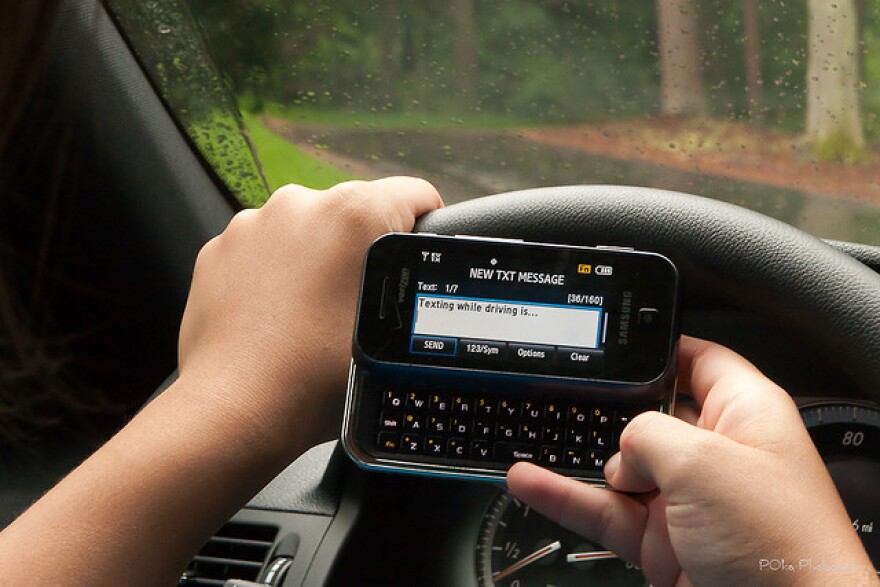What if our cell phones could automatically block our ability to text behind the wheel? A Florida Atlantic University professor says he’s developed software to make that happen.
The invention comes as most states have passedlaws against texting and driving, which is a secondary offense in Florida. That means a driver must be pulled over for some other reason, like running a stop sign. Drivers can’t be pulled over simply because an officer sees them typing on their phone.
Rep. Irving Slosberg (D-Delray Beach) tried to change that during the last legislative session. On the House floor, he proposed an amendment to a broader transportation bill that would have made texting while driving a primary offense.
“We have a free-for-all on our roads, and the question is: Are we going to address this free-for-all right here and now and make this a primary offense?”
He got support from Rep. Ray Pilon (R-Sarasota), who compared the texting law with Florida’s seat belt law.
“It took us four or five years just to get the no texting [law] as a secondary offense. It took about the same time for seat belt laws as a secondary offense,” Pilon told the House. “But it didn’t take very long after that to figure out that we all should be wearing our seat belts and that law enforcement should be able to ding you if you don’t do it.”
But Slosberg’s amendment was overwhelmingly voted down. Rep. Bobby Powell (D-West Palm Beach) argued that officers can’t always tell whether the driver is texting.
“Being that it’s subjective, that means that they’re arbitrarily going to be pulling people over,” Powell said. “I do believe that if there were a way that you could tell if someone were texting or not without it being subjective, then I would be in support of this bill.”
FAU College of Engineering professor Daniel Raviv may have the answer, and it has nothing to do with law enforcement. Raviv envisions a day, sometime soon, when no one will be able to text and drive because their phones won’t let them. His invention is already being pitched to cell phone providers.
Here's an edited version of our conversation.
You’ve come up with a way for cellphone providers to block the texting capability of whoever is in the driver’s seat of a moving vehicle?
Correct. As soon as they get to a certain threshold, let’s say five miles per hour, then the cell phone is moving fast enough to be identified as [being in] a moving vehicle. You can do whatever you like to do to practically every single feature of the cell phone.
So, the cell phone company can disable texting and any number of other things. There will be those who say that this whole concept is creepy – a program that will take action on my phone because it knows where I’m sitting and where my phone is located. How do you allay those concerns?
You know, we’ve lost so much privacy anyway. Our phone allows for third parties to know a lot about us. So compared to how much “privacy” we are losing, it’s almost nothing. Plus, if we can save lives, I think the opposition to this kind of requirement would be very minimal.
You’ve licensed the program to Port Nexus, a mobile app tech company based in Dania Beach. Can you give us an idea of who would have oversight of the program and when cell phone providers might have access to it?
The software is very simple software. Those who make the decision should make it. It can be the Big Brother, it can be the government, maybe insurance companies can be involved. Insurance companies can say, you know, it’s worth it for me if I give you a discount of 20 percent if you allow me to block you from texting.

